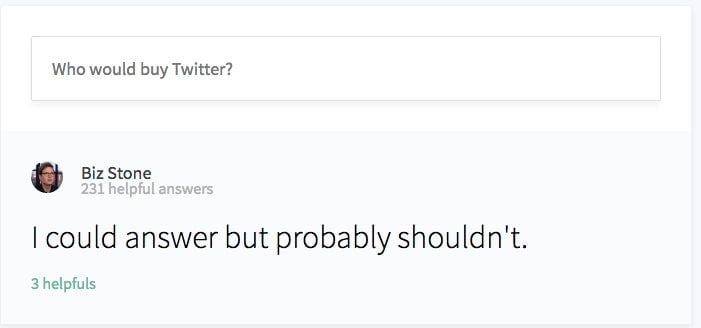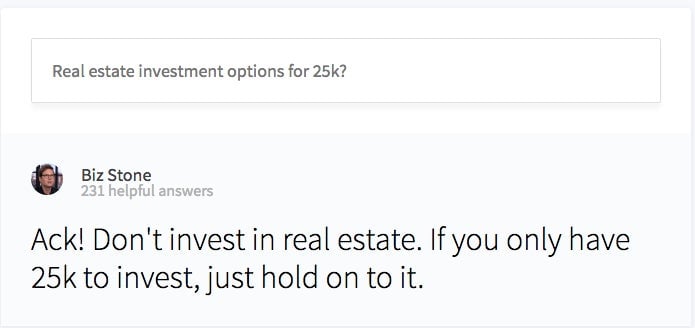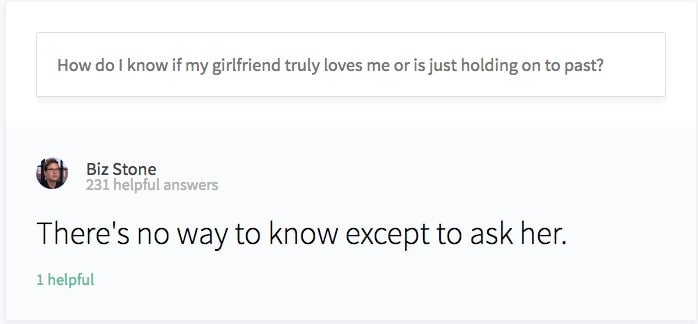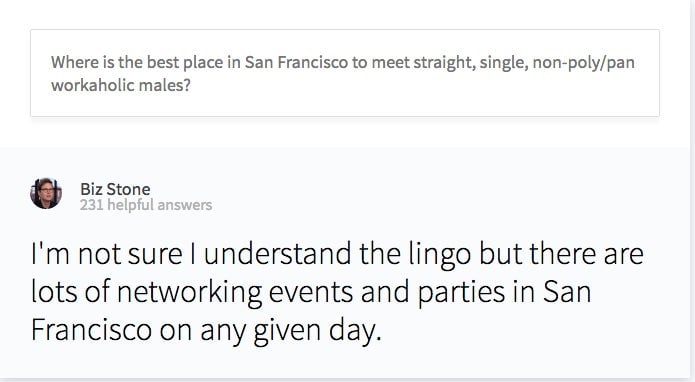Twitter co-founder relaunches failed search app to compete with Google
No more searching; just ask questions.


No more searching; just ask questions.
That’s the thesis behind Jelly, the app Twitter co-founder Biz Stone relaunched this week after his first version failed to take off in 2013. Stone says the future of search is “humanity plus technology:” asking anonymous questions of real people to get thoughtful answers.
Google relies on delivering millions of pages that often require minutes or hours of researching to answer a given question. Jelly, by contrast, wants to save you time by delivering the right answer to you in less than 10 minutes. Anonymous users ask questions routed to people whose self-selected interests suggest they’re best suited to answer them. Sound like other Q&A sites? I asked Jelly how it’s better:
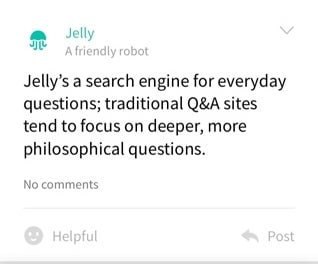
Stone says Jelly works because people are instinctively primed to help each other (users often get 30 replies he says), and the company wants to enable this exchange. ”Jelly sprung from the question: ‘What would search look like if it were created today?’” wrote Stone in the company’s launch announcement. “We knew mobility and good old, human experience would be defining factors.”
Perhaps the question is whether it’s the right way to search.
Haters were out in force this week. The comments section to Jelly’s launch announcement on Medium looks like an open-air user testing session that Stone probably wishes was private. Despite some supporters, critics pummeled the product for a Q&A model that didn’t solve core flaws such as quality control (see Yahoo Answers) or differentiate itself from already successful Q&A sites such as Quora. Android fans were also miffed by Jelly’s decision to launch on the web and iOS.
The first time Jelly launched in 2013, it also offered a Question and Answer format, but directed questions at your social network. The lack of anonymity was its undoing, says Stone. People searched less when they were asking their friends. “Would you want your Googles to be your tweets?” says Stone.
Two days after launch, answers were still slow to come by and often questionable. A query submitted at 1:30pm (PT) on Friday about the best way to go from Newark airport to Manhattan generated nothing after an hour and a half on Friday. Browsing through Jelly’s “relationships” section showed an answer about the best way to deal with “mean girls” at work: the top-ranked ones advised either ignoring, insulting or slapping the girls—only in far less delicate terms. Other answers on travel and dining were more helpful.
Stone admitted the site would need time to attract enough users to become better and faster even after a long private “beta” period. Most startups also enjoy the luxury of launching in anonymity while they iron out their problems. Jelly has to do it in the spotlight. Ultimately, Stone’s goal is for Jelly to answer questions in 10 minutes or less while you do other things.
Yet the most interesting responses might be from Stone himself. The founder was busy replying to users as questions poured in this week. His responses offered the entrepreneur’s brief thoughts on Twitter, romance, diet, real estate and why he started Jelly in the first place.
